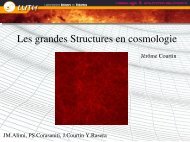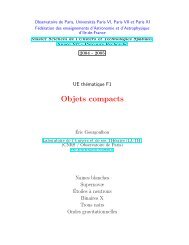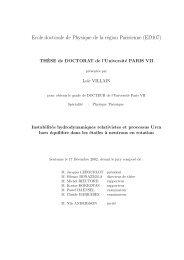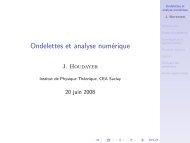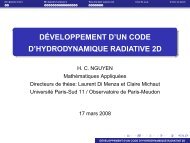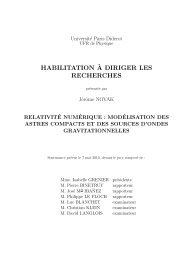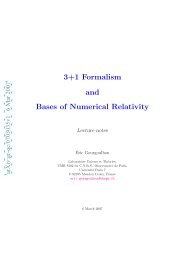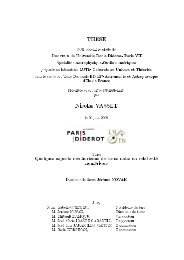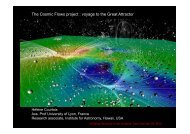Gravitational Waves from Inspiralling Compact Binaries in ... - LUTH
Gravitational Waves from Inspiralling Compact Binaries in ... - LUTH
Gravitational Waves from Inspiralling Compact Binaries in ... - LUTH
Create successful ePaper yourself
Turn your PDF publications into a flip-book with our unique Google optimized e-Paper software.
Log terms <strong>in</strong> total energy flux<br />
FZ total energy flux is <strong>in</strong> terms of the radiative moments,and is true<br />
for any PN source, and <strong>in</strong> particular for a b<strong>in</strong>ary system mov<strong>in</strong>g on<br />
eccentric orbit.<br />
Thus dependence on eccentricity et of the coefficient of ln r0 must<br />
necessarily be given by the function<br />
F (et) = ω8<br />
128 〈Î(4)<br />
ij Î(4)<br />
ij<br />
us<strong>in</strong>g reduced quadrupole moment<br />
〉 = 1<br />
64<br />
+∞<br />
p=1<br />
p 8 | Î<br />
(p) ij| 2 ,<br />
The result is thus perfectly <strong>in</strong> agreement with our f<strong>in</strong>d<strong>in</strong>g of the<br />
function F (e). The dependence of the tail part of the averaged<br />
energy flux on the constant r0 is such that it cancels out, for any<br />
value of the eccentricity, with a similar term com<strong>in</strong>g <strong>from</strong> the<br />
<strong>in</strong>stantaneous part of the flux. Of course such cancellation must be<br />
true for any source, and can be shown based on general arguments<br />
<strong>in</strong> Blanchet, but gives an <strong>in</strong>terest<strong>in</strong>g check of our calculations.<br />
BRI-IHP06-I – p.60/??



